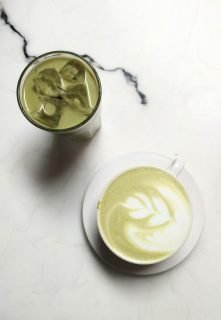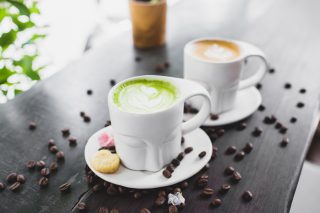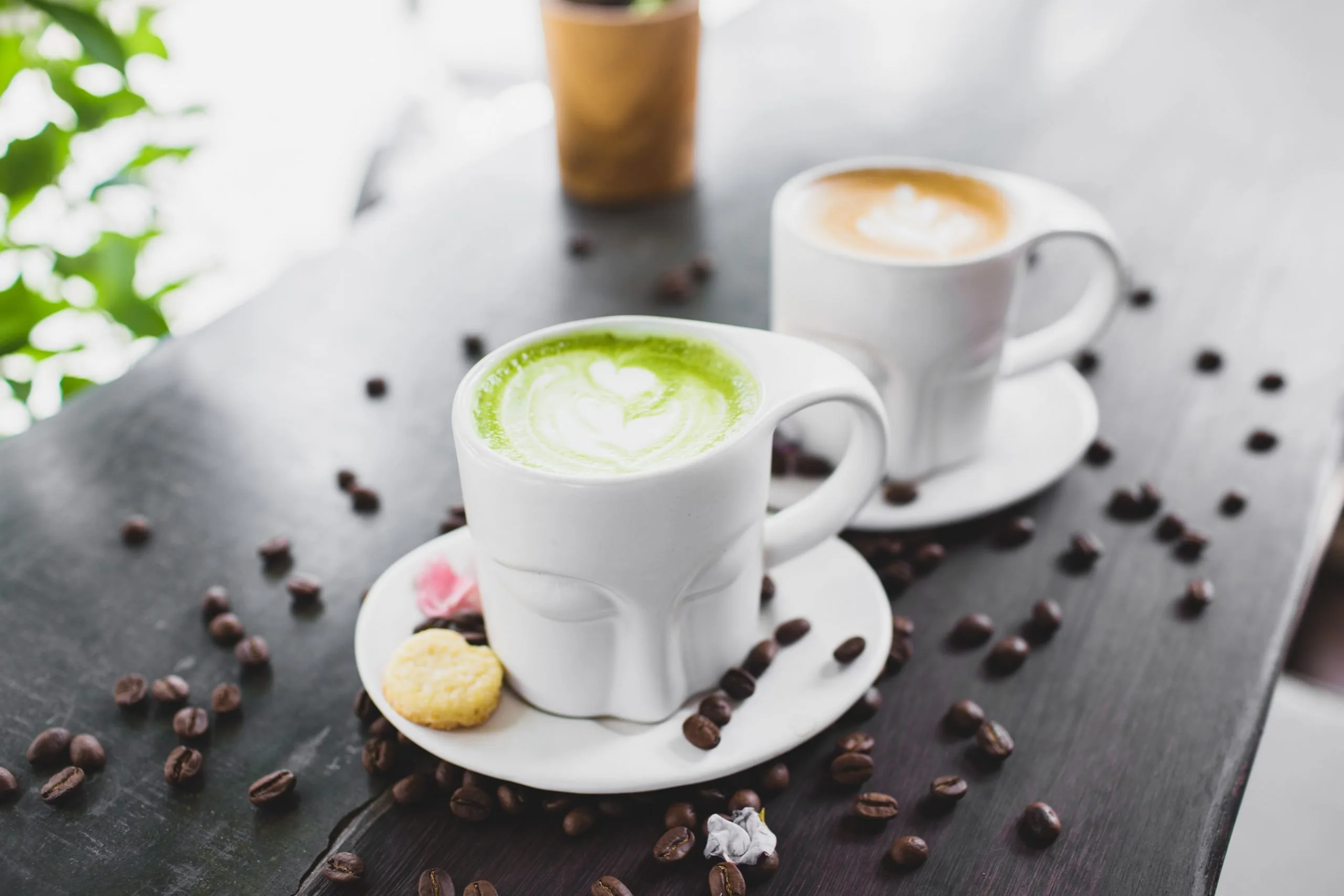When it comes to matcha and coffee, there are quite a few similarities. Both are used to boost energy and improve performance and both contain caffeine. But which of them is actually better for you. Matcha is fast becoming one of the world’s most popular drinks. But is it actually better for you? Should you give matcha a chance and swap out that daily cup of coffee?
Coffee

Photo by Taylor Franz on Unsplash
Coffee is one of the world’s most popular beverages. People drink it to boost energy and kick start the brain. There is a wide variety of options when it comes to coffee. All the varietals come from different areas of the world and different types of coffee trees. The coffee beans are actually the seeds from the fruit. These have been roasted in order to give them their distinctive flavor. The fruit itself is called a coffee cherry and each one contains two seeds (beans). Once the beans are roasted, they are ground down into the stuff that we used to wake ourselves up in the morning.
Matcha
Matcha is made of whole green tea leaves which are finely ground into a powder. It isn’t your average green tea either. When it comes to green tea, the majority of the benefits are often lost. This is because, during the steeping process, only a fraction of the valuable antioxidants and minerals are actually extracted. The majority of the beneficial parts of green tea remain in the bag. Matcha, on the other hand is stone ground into an extremely fine powder. The tealeaves are unheated and far less processed. This means that you gain all the benefits when you drink it.

Photo by Eunice Lui from Pexels
Benefits: Matcha vs Coffee
Low calorie
Coffee contains very few calories as long as it is prepared black with no additional cream, milk, flavors, or syrups. An 8-ounce cup of black coffee contains just 2 calories. Matcha is also a low-calorie option and contains very few calories as long as it is prepared with no additional cream, milk, flavors, or syrups. An 8 ounce cup of prepared matcha contains around 5 calories and 1 gram each of carbohydrates and protein.
Antioxidants
Both coffee and matcha are packed full of antioxidants. Antioxidants are good because they reduce the negative effects of oxidative stress in the body. Oxidative stress can lead to the onset of diseases such as cancer. Both matcha and coffee contain polyphenols. These are potent antioxidants and are most commonly found in fruits, vegetables, coffee, and tea. The
EGCG polyphenols found in green tea are hugely beneficial. This can prevent the growth of tumors and limit their spreding. They can also limit the production of blood vessels that commonly feed tumors and also promote the destruction of cancerous cells.
CGA polyphenols in coffee have similar benefits but are also highly beneficial in protecting against cancers. CGA offers protection against “oral, esophageal, gastric, colorectal, and liver cancer by suppressing tumor growth”.
Matcha is also rich in “rutin, vitamin C, and chlorophyll” which is what gives it its well-known green color.
Caffeine
Coffee contains a lot more caffeine per serving. In fact, your average cup contains 96 mg per 8oz cup. Matcha, on the other hand, offers a lower dose of caffeine. An average serving of matcha will only yield a maximum of 88 mg per 8ox cup. In the case of matcha, the amount of caffeine depends mostly on the amount of powder that is used in order to prepare the drink. Other factors when it comes to the caffeine content of matcha are the freshness of the leaves, brewing time, and water temperature.
Overall, you’ll likely get more caffeine out of a smaller amount of coffee. The major difference is in the type of caffeine boost. Coffee offers more energy, but it’s not a clean dose of caffeine. A lot of coffee often results in jitters but the hit from matcha is cleaner and longer-lasting. Having a cup of matcha is likely to result in a happy buzz that lasts well due to the “amino acid L-Theanine”. L-Theanine slows the release of caffeine into the blood and has a much more calming and relaxing effect.
Boosts metabolism
The caffeine in matcha and coffee are both beneficial for aiding in weight loss. Caffeine can kick-start your metabolism and activates ‘brown fat’. Brown fat is thought to protect against the accumulation of fat in the body. It generates heat and targets the metabolism of glucose and fat. Studies have shown that caffeine can actually boost metabolism by up to 13% for three hours. The antioxidants CGA and EGCG also offer potential weight loss benefits, both have been shown to aid in weight management and weight loss.

Photo by ROMAN ODINTSOV from Pexels
Overall winner
If you’re looking for a healthier energy boost, it might be best to opt for matcha instead of coffee. Whilst coffee does contain more caffeine, it can cause jitters and isn’t a ‘clean’ boost. The energy boost you get from coffee is quick and direct. Though this is good for a quick wake up, it can be problematic long-term as you’ll have to increase your intake to get the same boost. Drinking matcha will also offer a much longer-lasting energy boost and is ultimately easier for the body to process. Even if you don’t want to give up your coffee completely, it might be helpful to add the occasional matcha into the mix.
References
https://www.cosmopolitan.com/uk/body/diet-nutrition/a40800/is-matcha-better-than-coffee/
https://www.healthline.com/nutrition/matcha-vs-coffee
https://www.healthline.com/nutrition/top-13-evidence-based-health-benefits-of-coffee#TOC_TITLE_HDR_3





![women [longevity live]](https://longevitylive.com/wp-content/uploads/2020/01/photo-of-women-walking-down-the-street-1116984-100x100.jpg)










